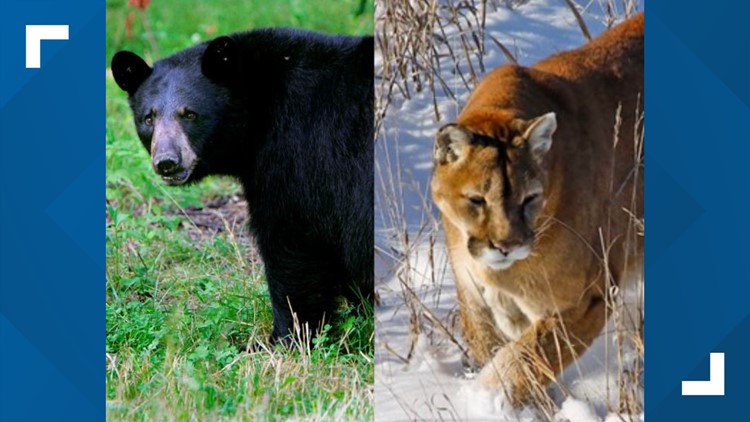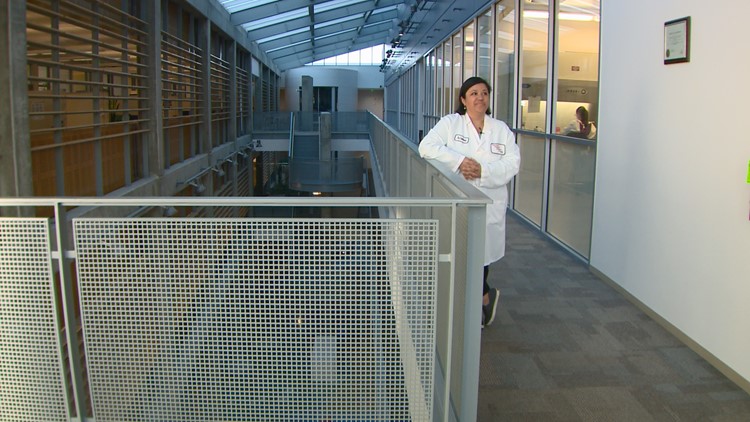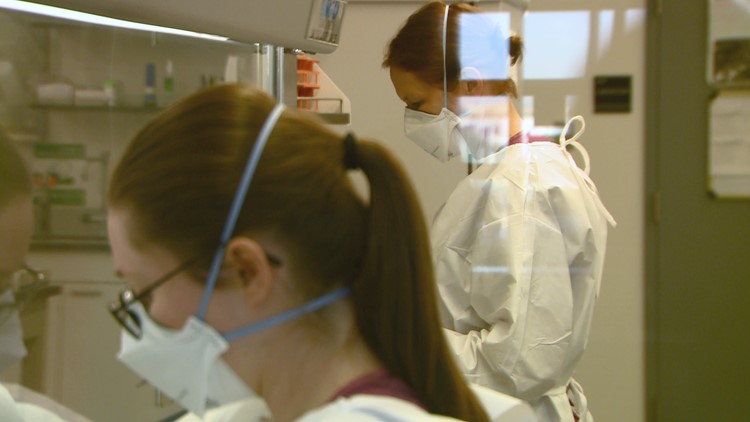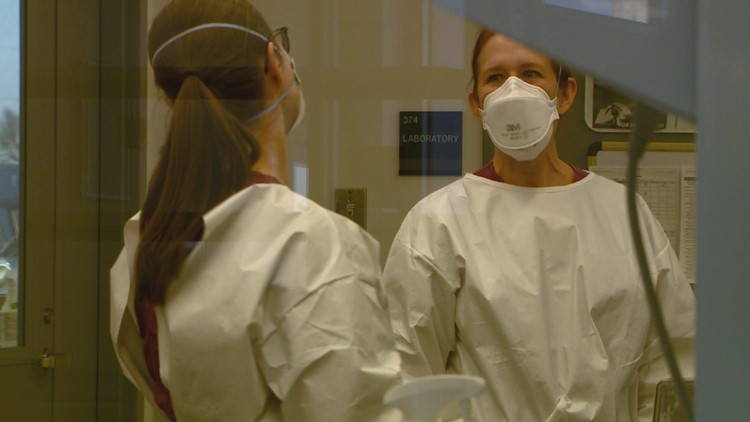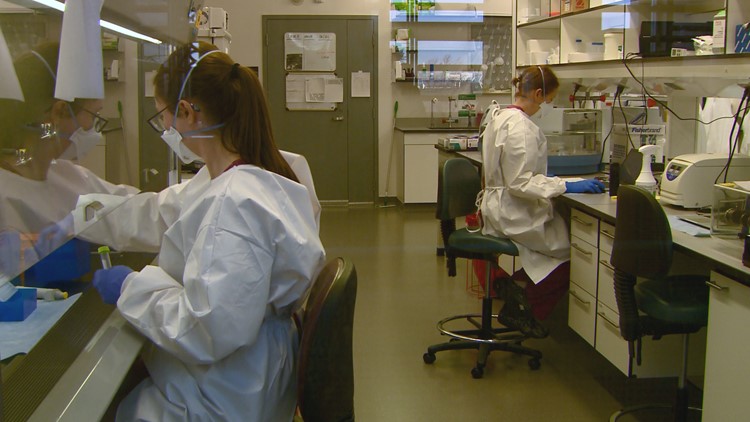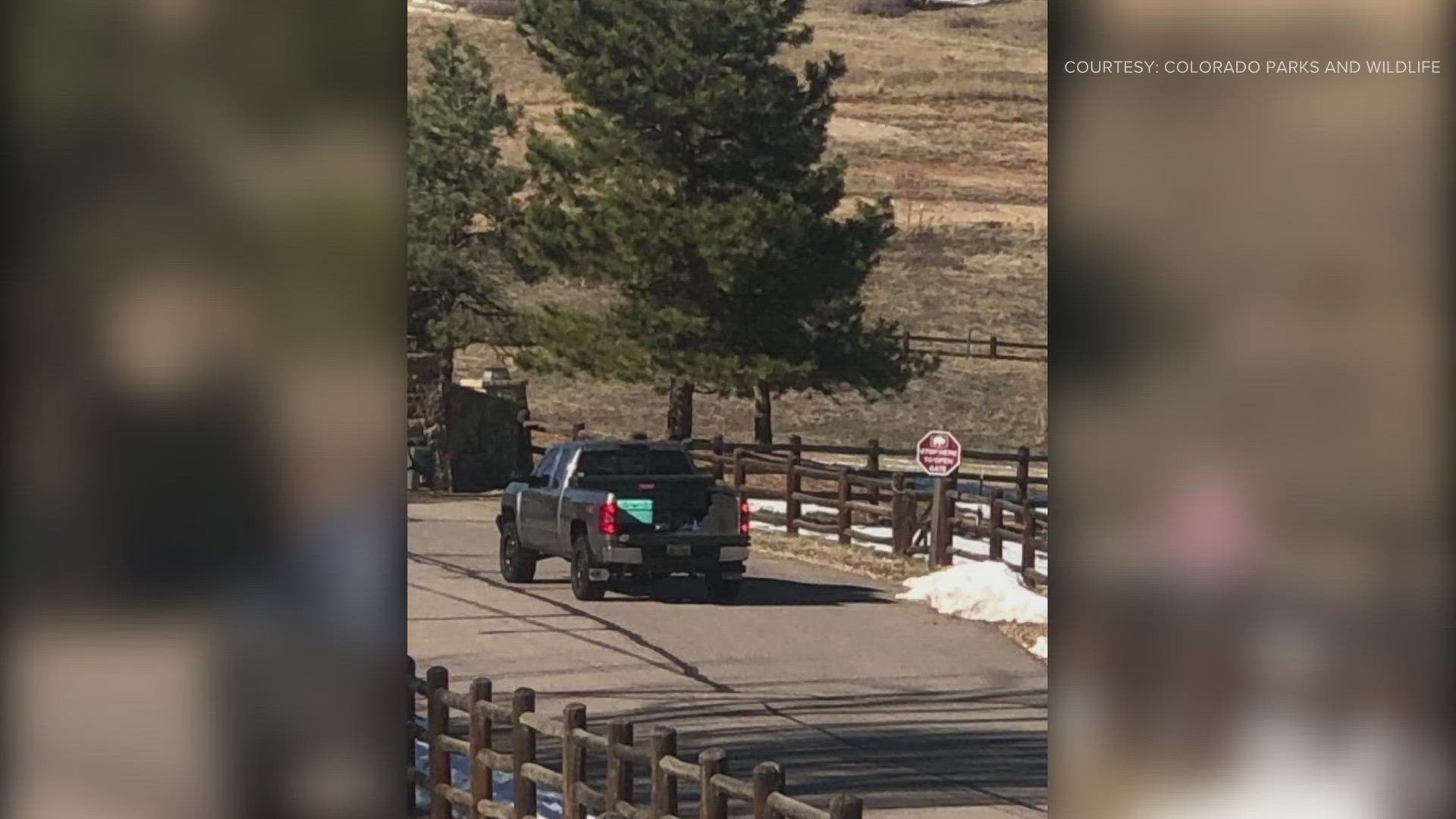COLORADO, USA — State wildlife officials have identified three recent cases of Colorado wildlife that have become sick with avian influenza (HPAI), or bird flu.
Colorado Parks and Wildlife (CPW) said in a release Thursday that a black bear from Huerfano County was affected by the disease in October, a skunk from Weld County tested positive in November and a mountain lion that died in Gunnison County was recently confirmed to have the disease.
The bear was euthanized in October by a CPW officer after he saw it having seizures. A necropsy revealed the bear had signs of HPAI, prompting CPW to test for it.
“The decision to humanely euthanize the animal by our wildlife officer was made following the abnormal behavior and knowledge that numerous infectious diseases cause neurological symptoms,” said CPW Area Wildlife Manager Mike Brown in a statement. “Extremely ill animals have difficulty moving and often act abnormally. While clinical signs of numerous diseases may be observed, diagnostic laboratory testing and necropsy services help determine the actual cause of death.”
The mountain lion was found dead just outside of Gunnison in January and showed signs of HPAI that have also been seen in domestic cats with the disease.
“Similar to many local species, mountain lions move through our communities on a regular basis as they travel between seasonal ranges throughout the year,” said CPW Area Wildlife Manager Brandon Diamond. “It was only a matter of time before the first HPAI case was confirmed in Gunnison County based on known cases in adjacent counties. While this is an interesting case study with the lion, it’s important to point out that HPAI has been documented previously in a variety of mammals from across the country. In Gunnison County, CPW routinely investigates reports of sick and injured wildlife and is always interested in hearing from the public if they encounter something that doesn’t look quite right.”
A number of mammals in the wild have been affected with the current strain of HPAI in the U.S. including skunks, foxes, black bears, bobcats, coyotes and raccoons among several others, CPW said. It has also been detected in marine mammals.
The numbers of mammal cases are currently low, CPW said, and the majority of cases confirmed during this outbreak are in wild and domestic birds. The most commonly affected wild birds in Colorado have been geese, as well as raptors and other scavenging birds that eat goose carcasses.
A lab at Colorado State University runs most of the state's testing for avian influenza.
"We're standing in front of our Level 3 biosafety laboratory," said Dr. Kristy Pabilonia, The Director of Veterinary Diagnostic Laboratories at CSU.
"Its where we do testing for foreign animal diseases and highly zoonotic diseases."
During the pandemic, this lab was running COVID tests. Today, they keep busy with HPAI testing.
Inside CSU's avian flu testing lab
"We've been testing for [avian influenza] about a year now. And the volume goes up and down. Sometimes we can see up to 100-200 samples in a day. Sometimes even more than that, and sometimes we see just a handful of samples in a day," she said.
Pabilonia said this avian influenza outbreak has led to the highest number of cases they've ever seen in commercial poultry and in wild birds.
"Its concerning because not all avian influenza viruses cause this level of mortality in birds. There are a lot of avian influenza viruses that birds can live with, and they’re not getting sick and dying," she said.
"So this is just a particularly pathogenic virus in wild and domestic birds and that is very concerning, and the ability of the virus to transmit directly from birds to mammals is [also] concerning."
CPW said it's important to keep your distance from wildlife and to not handle sick or dead birds. Although it's rare, some HPAI strains can infect people. You can visit the CDC's website for more information on how people can keep themselves safe from bird flu.
This map lists confirmed cases of HPAI in mammals.
SUGGESTED VIDEOS: Animals and Wildlife


